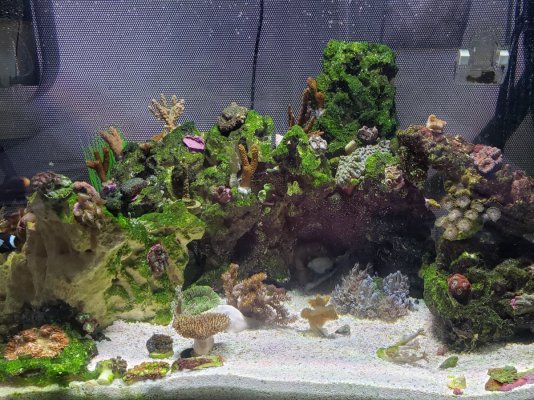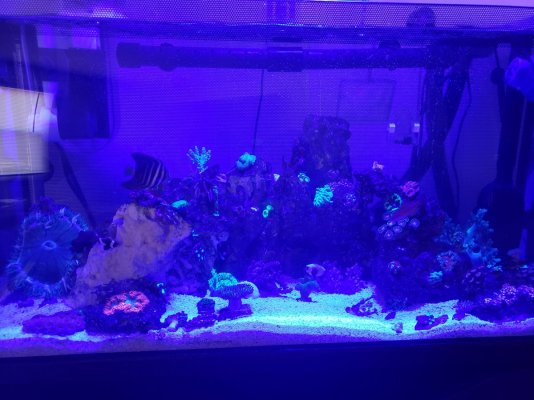So I have a 6 month old tank. In the last few weeks I've noticed(what I think is) green turf algea. It started on the rock on the left and has quickly spread to my whole tank as you can see in the picture. Ive tried scrubbing the rock but nothing comes off and for the last 3 weeks I started using red seas NO3/PO4 algea management with no noticeable change. Ive also started to run the lights at 6-8hrs a day vs 10-12 and at night and morning I have it covered to blackout out when the lights are off. I've read some other opinions but really haven't found a answer that I felt confident about. Any help would be great.....also in the last 2 weeks my nitrates and phosphate has been on the high side...ive also cut back on how much I feed to see if that helps and I do weekly water changes once a week every week normally 5 or 10 gal depending on my parameters I have about a 32 gallon display tank . Ive also attached a photo with just the white light on so you can see the green. Also it seems everything is browning out but ive been doing everything ive found researching about browning out but still seems to be happening.....in the blue light you'd never know until the white light is turned on.


















